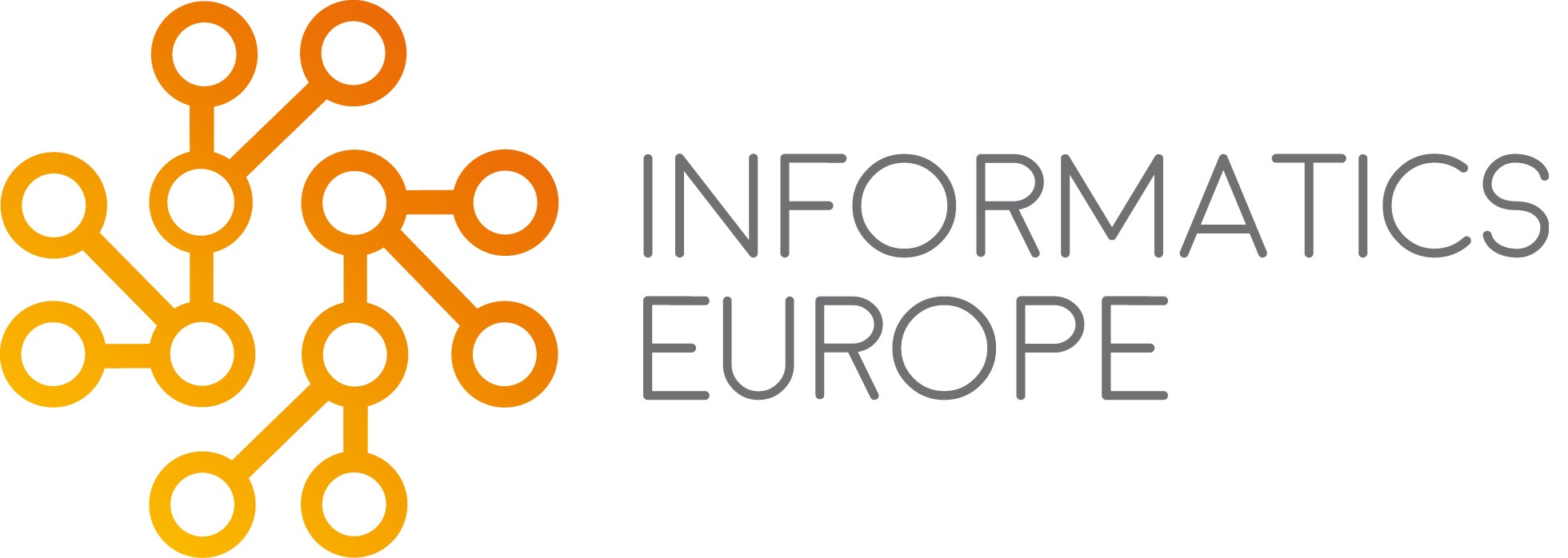Main Theme Sessions
Digital transformation and informatics: how do they influence each other, and how can they be utilized to bring greater benefits to science, education, and society?
With this year’s main theme “Workforce for the Digital Transformation”, the 18th European Computer Science Summit (ECSS) 2022 addressed the key topic from different perspectives.
Confirmed keynote speakers:
- Anna Cox, University College London, UK, Digital Transformation for Work-Life Boundary Management [Slides]
- Walter Quattrociocchi, Sapienza Università di Roma, Italy, Information spreading in a disintermediated environment [Slides]
- Judith Simon, University of Hamburg, Germany, IT for Good? Ethics in Computer Science Education & Practice [Slides]
- Hannes Federrath, University of Hamburg / Former President of German Informatics Society, Germany Challenges and topics in Digital Transformation — from the viewpoint of a Computer Society [Slides]
- Michael Müller Wünsch, CIO Otto (GmbH & Co KG), Germany, How to: Digital Literacy and Competence in our society [Slides]
Workshop Highlights
The ECSS panel on „Workforce for the Digital Transformation“ explored the relevance of computer science skills for understanding and shaping society and was facilitated by Tilo Böhmann (University of Hamburg, DE).
Judith Simon (Universität Hamburg) started the session by arguing that technology is never neutral from a values-based perspective. Geraldine Fitzpatrick (Technische Universität Wien) presented work of Anna Cox (University College London) on managing work-life boundaries in increasingly hybrid work environments. Walter Quattrociocchi (Sapienza Università di Roma) shared findings on spreading of (dis)information in social networks. Michael Müller-Wünsch (OTTO) highlighted the massive need for digital skills in our society. Finally, Hannes Federrath (Universität Hamburg and former President of the Gesellschaft für Informatik) explained how the German Association for Computer Science systematically engages policy, society, and professionals in on-going social debates on our digital future.
The lively discussion that followed highlighted the need for computer scientists to engage in societal discourse and policy shaping, bringing tech competence to bear on understanding current developments and crafting solutions for the future. If computer scientist refrain from these fields, other voices with less knowledge on the technical aspects of digital systems might dominate the debate, risking unsound design choices and misplaced expectations. The discussion thus called for a more systematic inclusion of ethical and policy-related aspects into computer science education, the sharing of best practices for teaching this area, and motivating computer scientist to engage in public discourse. All this was seen as an essential skill set for individuals in the context of digital transformation.










*Please note that the photos above are better viewed when applying zoom out.
Presentation slides are available to download in the session rundown here.





















